Choosing the best remodeling contractor for your project is a key step to transforming your home. This process starts with understanding what you need from the remodel, like how big the project is, how much money you can spend, and when you want it done.
Research plays a huge part too. You should ask around for suggestions, talk on the phone with potential hires, and then meet them in person to get detailed estimates and feel if they’re the right fit.
Finding someone who’s officially allowed to do this work, has insurance that protects against accidents or damage, and can handle any official permissions needed is non-negotiable.
Looking at pictures of their previous jobs and talking to past clients gives you an idea of their quality. Discussing money matters upfront helps avoid surprises later on, ensuring everyone knows what’s expected financially.
Contracts are vital; they make sure both you and your contractor know exactly what’s supposed to happen when it comes to timelines and job details. Good communication is also critical through all stages of remodeling – from planning through any hiccups along the way.
Each piece of advice aims at making sure hiring a pro goes smoothly so your dream home becomes a reality without unnecessary stress or cost overruns. Let’s dive deeper into these steps together!
Key Takeaways
- Look for a remodeling contractor who matches the specific needs of your project by first understanding the scope, setting a clear budget, and having a realistic timeline in place.
- Gather recommendations from people you trust and conduct thorough research on each contractor’s background, including checking online reviews and conducting initial phone interviews before meeting them in person.
- Confirm that your chosen contractor has valid licenses, certifications, and insurance coverage to ensure they meet professional standards and protect you against liabilities.
- Discuss detailed payment schedules and sign a contract outlining the project’s scope, timeline, payment terms, and responsibilities to avoid misunderstandings or conflicts during the renovation process.
- Establish effective communication methods with your contractor to stay updated on progress and promptly resolve any issues or changes that might arise during the remodeling work.
Identifying Your Remodeling Needs
Identifying your remodeling needs involves understanding the scope of your project, setting a budget, and considering your timeline. Once you comprehend these key elements, you can confidently initiate the process to upgrade or renovate your home.
Determine the scope of your project
Figuring out the scope of your project means deciding how big or small your remodeling job will be. This step is crucial because it helps you understand what you really need from a home remodeling contractor.
Think about whether you’re looking to update a few rooms, like the kitchen and bathroom, or if you’re aiming for a full house renovation. Knowing this will guide you in finding a contractor skilled in those specific areas.
Set clear goals for what you want to achieve with your remodel. Do you desire more space in your living room? Are energy-efficient windows on your list? Setting these objectives early helps avoid surprises later and ensures that potential contractors can meet your vision.
Clear goals also make it easier to communicate with professionals about high-quality work expectations and necessary building permits, making sure everyone is on the same page from day one.
Identify your budget
Pinpointing your budget is a crucial step before you dive into any remodeling adventure. Start by considering all costs involved—this includes the money spent on manual labor, materials, decorative finishes, and even those sneaky extra fees like municipality permissions and approvals from various boards.
It’s wise to prepare for surprises along the way, so setting aside an additional 10 to 20 percent of your total budget for unforeseen expenses during the upgrade process can save you headaches later.
Calculating these costs might sound tricky but getting a clear picture of your financial limits early prevents overspending. Ask yourself how much you’re willing to invest in transforming your space.
This means talking numbers with mortgage lenders or banking institutions if financing is part of the plan. Bear in mind that sticking within these boundaries helps ensure that your project moves smoothly without breaking the bank.
Consider your timeline
Setting a timeline for your home makeover is key. You need to figure out how soon you want the work done and if there are any important dates like holidays or family events that you plan around.
Keep in mind, that some projects might give you more bang for your buck based on market demands. For instance, finishing a basement may boost your property’s value more than redoing a single bathroom.
Plan each step of the renovation week by week to stay on track. Be realistic about how long tasks will take, especially with unexpected delays like weather or material shortages often affecting schedules.
Discuss this schedule with your general contractor to make sure they can meet these deadlines while maintaining quality workmanship. This helps prevent any misunderstandings and ensures that the project moves forward smoothly without rushing through important details.
Researching and Gathering Estimates
When gathering estimates, start by getting recommendations from friends, family, and online resources. Have phone interviews with the contractors to discuss their experience and approach.
Finally, schedule meetings with your shortlisted candidates to get a feel for their professionalism and compatibility with your project.
Get recommendations
To begin your search for a remodeling contractor, start by asking friends, family, and neighbors for recommendations. You can also check with local hardware stores or use online platforms to find reliable contractors in your area.
Getting recommendations from trusted sources can help you narrow down your options and find a contractor who has a proven track record of delivering quality work.
Once you’ve gathered some recommendations, take the time to research each contractor’s background and reputation. Look for online reviews and testimonials from previous clients to get a sense of their work ethic and reliability.
Do phone interviews
When seeking a remodeling contractor, conducting phone interviews allows for an initial vetting process. You can inquire about their experience, availability, and approach to your specific project.
Moreover, through these interviews, you can also gauge the contractors’ communication style and professionalism. After these initial conversations, it’s recommended to narrow down your list based on the information gathered and proceed with in-person meetings for further assessment.
During phone interviews with potential contractors, gather essential details such as their availability and estimated timeline for completion of the project. Inquiring about their previous experiences on similar projects could provide valuable insights into their expertise in handling your specific remodeling needs.
Schedule meetings with shortlisted contractors
When scheduling meetings with shortlisted contractors, ensure that all relevant parties are available. Confirm the appointment date and time in advance to avoid any last-minute changes.
During the meeting, ask specific questions about their experience, qualifications, and availability for your project. Take detailed notes during each meeting to accurately compare the pros and cons of each contractor before making a final decision.
Additionally, it’s crucial to request itemized estimates from each contractor that outline labor costs, materials needed, and project timelines. This allows for a thorough comparison of their proposed plans for your remodeling project.
Keeping communication clear and open with all potential contractors will help you make an informed decision based on accurate information and understanding.
Remember to stay professional yet personable throughout these interactions; building rapport at this stage can set the tone for successful collaboration down the line.
Vetting and Hiring the Right Contractor
Check the validity of licenses and certifications. Verify the contractor’s insurance coverage. Discuss clear payment schedules and sign a contract with confidence. For more in-depth knowledge, continue reading our comprehensive guide on choosing the best remodeling contractor for your project.
Check for licenses and certifications
Before hiring a contractor, ensure they possess the necessary licenses and certifications. This confirms their qualifications, training, and compliance with industry standards. Additionally, confirm that all employees or subcontractors also carry appropriate licensing and certifications to uphold professionalism and quality workmanship..
Verify insurance coverage
When hiring a remodeling contractor, it’s crucial to verify their insurance coverage. This involves calling the contractor’s insurance carrier to confirm worker’s compensation, property damage, and personal liability coverage.
Additionally, request a certificate of insurance (COI) from the contractor as proof of proper insurance and bonding. This step ensures that you are protected from potential liabilities or damages during the remodeling process.
It is essential to take these measures seriously in order to secure your peace of mind and protect your investment in home renovations. By confirming the insurance coverage, you can rest assured that any unforeseen incidents will be covered by the contractor’s policy.
Discuss payment schedules
When discussing payment schedules with a potential contractor, it’s essential to establish clear terms that work for both parties. You can negotiate the timing and amounts of payments based on milestones or project phases.
This approach ensures that you have control over the flow of funds while giving the contractor assurance for their work.
Moreover, it’s advisable to set up a written agreement outlining all payment details and any consequences for late payments. By doing so, you protect yourself from any unexpected financial burdens throughout the remodeling project.
Sign a contract
Before starting any remodeling work, it’s imperative to sign a detailed contract with the chosen contractor. This written agreement should include all essential details like the project timeline, payment terms, and the responsibilities of both parties.
It ensures accountability and clarity from the start, reducing potential conflicts throughout the project.
The signed contract acts as legal protection for both you and your contractor. It can also help in setting clear expectations regarding the scope of work and specific requirements, safeguarding against any misunderstandings later on.
Dogwood Home Remodeling Services
Dogwood Home & Design offers comprehensive home remodeling services, specializing in turn-key operations for kitchen, bath, and flooring projects. With a keen focus on style and project-type completion, the company is dedicated to providing expert craftsmanship.
Their team of skilled professionals ensures each project is meticulously tailored to meet the client’s specific needs.
After a thorough consultation process, Dogwood Home & Design presents a brief proposal and estimated cost for the project. The company’s dedication to guiding homeowners through finding and working with the right remodeling contractor underpins their commitment to enhancing homes with high-quality renovations.
Home Remodeling in Darien, CT
When it comes to home remodeling in Darien, CT, obtaining homeowner reviews and examining multiple options is crucial. Search for the best general contractors in the area and consider top-reviewed local choices like Yelp – Greenwich Home Remodeling, R & L Home Services, A to Z Renovations, and The Renovation Co.
Choosing carefully from these acclaimed professionals will underpin a successful renovation project while enhancing your property with the desired upgrades.
These entities include Dogwood House Refurbishment Solutions which provides comprehensive renovation solutions aimed at enhancing households through sustainable practices and resource-efficient methodologies.
Communication and Conflict Resolution
Establish your preferred mode of communication, and be prepared to adapt as needed. Anticipate potential setbacks and change orders, ensuring you have a plan in place to address any conflicts that may arise.
Establish communication preferences
Consider setting up a regular meeting schedule with your contractor to discuss progress, issues, and changes. Use communication methods like email, phone calls, or project management apps to ensure timely updates and quick resolutions.
Regular check-ins help maintain a transparent and collaborative working relationship between you and the contractor.
Keeping everyone on the same page throughout the project is vital for minimizing misunderstandings and potential conflicts. Selecting reliable communication tools that suit both parties’ preferences can significantly contribute to a successful remodeling experience.
Be prepared for change orders and setbacks
Prepare yourself for unexpected changes and delays. Address potential issues that may arise during the project, such as modifications to the initial plans or unforeseen challenges like material shortages.
By being proactive in anticipating these situations, you can minimize their impact on your remodeling process and maintain progress towards achieving your desired outcome.
Stay resilient when confronted with change orders or setbacks. Plan ahead for how you will tackle alterations to the project scope or handle unforeseen obstacles that could affect your timeline or budget.
Discuss a resolution plan for conflicts
When conflicts arise during a remodeling project, having a clear resolution plan in place is crucial for maintaining the progress and quality of the work. Start by openly discussing potential conflict scenarios with your contractor and outlining how issues will be addressed.
Encourage open communication and establish agreed-upon steps to resolve disputes, such as formal meetings or involving a neutral mediator if needed. By proactively tackling possible conflicts through transparent discussions and pre-defined resolution strategies, you can mitigate disruptions and ensure that the remodeling process stays on track.
To effectively navigate conflicts, it’s essential to have a detailed strategy in place rather than relying solely on reactive measures. Setting out clear guidelines for addressing disagreements helps build trust between you and your contractor while also demonstrating professionalism in managing any unforeseen challenges that may arise.
Conclusion
In conclusion, choosing the best remodeling contractor for your project requires careful consideration and thorough research. Identifying your specific remodeling needs—including the scope of your project, budget, and timeline—is crucial in finding a compatible contractor.
Researching and gathering estimates from multiple contractors will provide valuable insights into their experience and pricing structure. Vetting the right contractor involves checking licenses, and insurance coverage, discussing payment schedules, and signing a detailed contract.
Establishing clear communication preferences and conflict resolution plans with your selected contractor will ensure a smooth renovation process. These steps are practical and efficient, ultimately leading to successful home improvement projects.
For further guidance on selecting the ideal remodeling contractor tailored towards your unique needs, consider seeking advice from industry professionals or utilizing reputable online resources.
FAQs
1. Why is it important to check if a remodeling contractor has liability insurance?
Checking for liability insurance ensures that the remodeling contractor can cover any damages or accidents that happen during your project. This protects you from unexpected costs.
2. What should I look for in a contractor’s background checks?
When reviewing a contractor’s background checks, look for their experience, past work quality, and customer reviews. Also, confirm they have no legal issues related to their business.
3. How do I know if a contractor follows Leadership in Energy and Environmental Design (LEED) standards?
Ask the contractor about their certification and experience with LEED projects. Contractors who follow these standards focus on energy-efficient and environmentally friendly building practices.
4. Can talking to an insurance agent help me choose a remodeling contractor?
Yes! An insurance agent can advise on what coverage your project needs and recommend contractors who carry the appropriate liability insurance, ensuring you’re protected.
5. Should I consider how a contractor plans to remodel areas like kitchens or bathrooms differently?
Absolutely! Look for contractors with specific experience in remodeling kitchens or bathrooms as these areas often require specialized skills like plumbing for sinks or installing countertops correctly.



